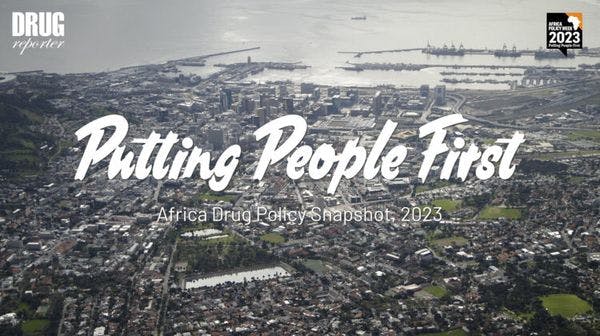Rights Reporter Foundation
Putting People First - The Africa Policy Week 2023 in a snapshot
It was my first time visiting South Africa. My first impressions about the country were mixed. I was astonished by the abundance of natural beauty. Table Mountain, a sacred site for the original inhabitants of this land, dominates the landscape, with a splendid view from the top to the meeting point of two oceans. But I was also shocked by the extreme social inequalities that are very much visible as you cross the town. I have seen inequality before but nowhere so sharp and definite than in South Africa. I learned later that it is the most unequal society on Earth.
Even though Apartheid may be officially over, the poverty line (often but not always corresponding with the colour line) divides society. There are those who have – and those who have not. Those who have protect their property with barbed wire, CCTV, security guards, and high fences. And those who have nothing often sleep on the street, a few blocks from the luxury palaces and hotels of the rich, unprotected and exposed to extreme cold and heat, to hunger and sickness, to unhealed wounds and unprocessed childhood trauma.
It is a no brainer that drug use is very polarised, just like everywhere else in the world where society is so unequal.. The upper and middle-classes use good quality drugs, mostly to relax, to play, and to enhance pleasure. They are rarely bothered by the police, they have access to good health care, and they have a strong social network that holds them even when they lose control. But those who were born on the wrong side of the poverty line often use cheaper and lower quality substances to forget and ease the pain and desperation of everyday life. They are often arrested by police, get imprisoned, and experience discrimination at all levels of health and social care.
For a long time, the response of South Africa to illicit drugs was very one-dimensional: tough law enforcement and abstinence-based treatment. But as we learned, inevitable social change forces its way forward, thanks to the unwavering efforts of civil society. In the past ten years, peer activists, professional service providers, and researchers, with the support of international donors, were able to set up the first harm reduction programs, including opioid agonist treatment sites. The Constitutional Court, in its 2018 judgement, found that criminalisation of cannabis (or dagga, as locals call it) use and cultivation for personal use is unconstitutional. Decriminalisation of sex work is on the agenda of the parliament.
In our movie we salute the courage and creativity of SANPUD, the South African Network of People Who Use Drugs, a community-driven organisation that is an inspiration and a beacon of hope not only in Africa but for us, living in other parts of the world.
Text and interviews: Péter Sárosi
Video: István Gábor Takács
Topics
Related Profiles
- International Drug Policy Consortium (IDPC)
- South African Network of People Who Use Drugs (SANPUD)
